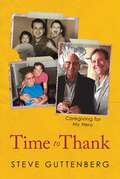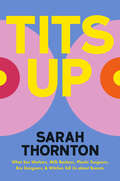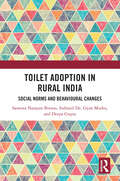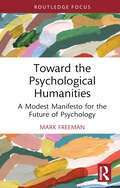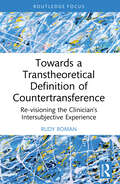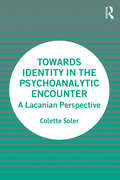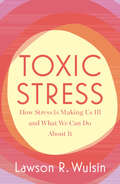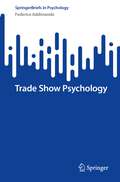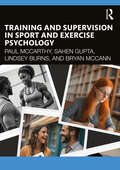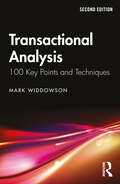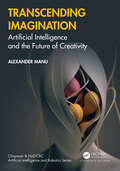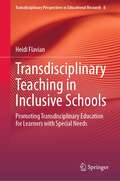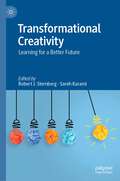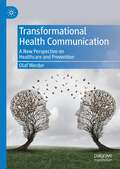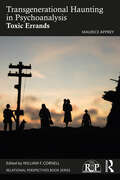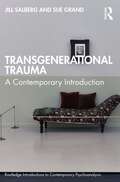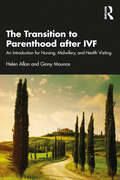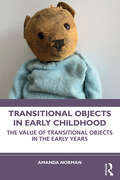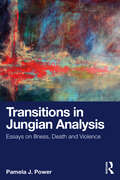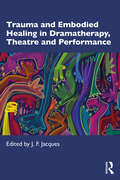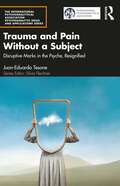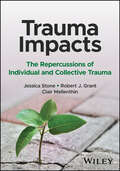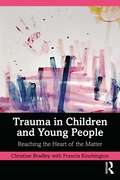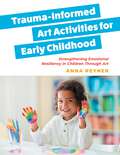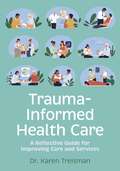- Table View
- List View
Time to Thank: Caregiving for My Hero
by Steve GuttenbergAfter his father—the hero and strength of the family—is diagnosed with kidney failure, actor Steve Guttenberg dedicates himself to becoming a caregiver and reflects on their life together, from childhood through his Hollywood career, in his father&’s final years.Since moving to Hollywood at age seventeen, Steve Guttenberg has delighted and moved audiences with his film and television work. But when his father is diagnosed with kidney failure, Steve has to step into a new and wholly unexpected role: caretaker. In Time to Thank, Steve tracks his weekly road trips from Los Angeles to Arizona to care for his father and the ways in which his time on the road affords him the perspective to reflect on his life.Through the prism of his relationship with his father, Steve recounts his early life in Queens and Long Island; his early career as a rising Hollywood star, trying to find his way with the encouragement of his parents; and the painful and moving work of helping care for an ailing family member at the end of their life. From glamorous Hollywood parties and film sets around the world to the daily process of dialysis in suburban Phoenix, Steve offers his wit, empathy, and signature charm.This is a book for movie fans, road trip junkies, and anyone who finds themselves doing the hard work of caring for an aging loved one. Steve Guttenberg serves as a uniquely perceptive guide through all these phases of life, with a story that is certain to touch readers and make sure they know that they&’re not alone.
Tits Up: What Sex Workers, Milk Bankers, Plastic Surgeons, Bra Designers, and Witches Tell Us about Breasts
by Sarah ThorntonAn innovative investigation of the five strange worlds that worship women’s chests. After years of biopsies, best-selling author Sarah Thornton made the difficult decision to have a double mastectomy. But, after her reconstructive surgery, she was perplexed: What had she lost? And gained? An experienced sleuth, she resolved to venture behind the scenes to uncover the social and cultural significance of breasts. Riotous and galvanizing, Tits Up excavates the diverse truths of mammary glands from the strip club to the operating room, from the nation’s oldest human milk bank to the fit rooms of bra designers. Thornton draws insights from plastic surgeons, lactation consultants, body-positive witches, lingerie models, and “free the nipple” activists to explore the status of breasts as emblems of femininity. She examines how women’s chests have become a billion-dollar business, as well as a stage for debates about race, class, gender, and desire. Everywhere she turns, Thornton encounters chauvinist myths about this elemental body part that quietly justify deficits in women’s bodily autonomy and endorse shortfalls in their political status. Blending sociology, reportage, and personal narrative with refreshing optimism and wit, Thornton has one overriding ambition—to liberate breasts from centuries of patriarchal prejudice.
Toilet Adoption in Rural India: Social Norms and Behavioural Changes
by Saswata Biswas Indranil De Gyan Mudra Deepa GuptaThis book examines sanitation and toilet access across rural India, focusing on psychological, socio-cultural, infrastructural, and normative barriers to the initiative of Swachh Bharat Mission (SBM). While sketching the evolution of sanitation policies in India, it assesses their impact on sanitation behaviour. It also studies the implications of variations in caste, religion, and geography on toilet usage across Indian states.By analysing data from various states and intensive micro-level studies of three states, i.e., rural Bihar, Gujarat, and Telangana, this volume: Suggests that socio-cultural factors are as significant as economic factors in shaping sanitation behaviour; Argues that the concepts of cleanliness and pollution are often determined by the social-cultural context, rooted in historical events that have shaped traditional beliefs and ideas about space; Explores gendered perspectives on the usage of and access to toilets; Highlights the limited effectiveness of Information, Education, and Communication (IEC) programs in encouraging toilet adoption and emphasizes the need for information dissemination at the ground level; Gives recommendations for enhancing the adoption of toilets in rural India, including provision for more than one toilet per household, uninterrupted access to water, and behavioural change to combat open defecation. This book will be useful to students studying sociology, psychology, social work, and development studies. It will also be an invaluable companion to NGOs, social workers and activists actively involved in water, sanitation, and hygiene. Moreover, this book holds immense value as a pivotal resource and point of reference for policymakers engaged in rural development with a specific focus on Sustainable Development Goals.
Toward the Psychological Humanities: A Modest Manifesto for the Future of Psychology (Advances in Theoretical and Philosophical Psychology)
by Mark FreemanMark Freeman’s inspiring account of the burgeoning field of the psychological humanities presents a clear and compelling vision of what the discipline of psychology might become. Valuable though the scientific perspective has been for advancing the discipline, Freeman maintains that significant dimensions of the human experience elude this perspective and call for an entirely different kind of psychology, one more closely tied to the arts and humanities. Issuing his call for the psychological humanities in the form of a ten chapter "manifesto," Freeman’s groundbreaking book offers a comprehensive rationale for a more inclusive, pluralistic, and artful approach to exploring the psychological world in all of its potential complexity, obscurity, and beauty. Engaging and accessible, this bold, provocative book is destined to spark significant discussion and debate in audiences including advanced undergraduates, postgraduates, and professionals in the field of psychology with interests in theoretical and philosophical psychology, history of psychology, clinical psychology, humanistic psychology, and qualitative psychology. It will also be welcomed by those in philosophy, literature, and the arts, as well as anyone intrigued by psychological life who may be interested in encountering a vital new approach to examining the human condition.
Towards a Transtheoretical Definition of Countertransference: Re-visioning the Clinician's Intersubjective Experience (Explorations in Mental Health)
by Rudy RomanThis book explores the analyst’s countertransference experience in clinical settings from a number of theoretical perspectives in order to develop a transtheoretical definition of countertransference. Stemming from an examination of the definition of countertransference itself, the author utilizes a philosophical hermeneutic approach to ask how pathological countertransference develops, how analysts separate themselves from the patient’s experience, and what analysts should do to prevent their countertransference response from interfering with treatment. Through the unique hermeneutic methodology, philosophical themes within selected writings are explored as a way of gaining a deeper meaning and understanding of countertransference. By re-interpreting these selected writings in a new light, the book develops a transtheoretical definition and approach to countertransference. As such, the author offers a timely reassessment of the meaning and understanding of countertransference as it has evolved over the past century, going from being considered an obstacle to treatment brought on by the analyst’s unconscious conflicts to being understood as a way of communicating and understanding the patient’s unconscious material. It also provides a unique pathway through various depth psychological, therapeutic, and theoretical approaches to countertransference, foregrounding the significance and therapeutic value of the concept and seeking a new transtheoretical definition. This volume will appeal to scholars and researchers of psychology and mental health.
Towards Identity in the Psychoanalytic Encounter: A Lacanian Perspective
by Colette SolerTowards Identity in the Psychoanalytic Encounter addresses the theme of identification and identity in the psychoanalytic clinic as elaborated by Jacques Lacan over the course of his teaching. In psychoanalysis, the subject who is summoned “to speak himself” is by definition lacking in identity. His question is “What am I?” but, as he is only represented by his words, his being is “always elsewhere”, within other words that are yet to come. Thus a paradox: one seeks via speech the identity of a being who, through his speech, is not identifiable. Yet the fact remains, he has a body, and he is riveted to sufferings that psychoanalysis, from Freud to Lacan, identified, which are not accidental, which we call repetition and symptom, and which shift the question of identity because a One, real, is at play in them. Towards Identity in the Psychoanalytic Encounter will be key reading for the study and research of Lacanian psychoanalysis and all practitioners interested in Lacan’s teaching, as well as other discourses such as philosophy, art, literature and history.
Trade Show Psychology (SpringerBriefs in Psychology)
by Federico AddimandoIn this book, readers are taken on an illuminating journey into the world of trade shows from a unique perspective – the psychology of both exhibitors and attendees. This comprehensive guide delves deep into the intricacies of drawing visitors to your booth and forging meaningful connections. It offers a wealth of insights into the art of engaging potential clients effectively and understanding their behavior within the bustling trade show environment. The book covers a wide array of topics, including techniques for attracting visitors to your booth, effective communication strategies, and the psychology behind booth design. From the selection of color schemes and themes that resonate with your target audience to crafting compelling messages that leave a lasting impression, this book provides practical advice for achieving trade show success. It also explores the role of technology and digital marketing in modern trade show strategies, offering a blend of timeless principles and cutting-edge approaches. Moreover, the text delves into case studies and real-world examples from successful exhibitors, showcasing their innovative methods and success stories. Whether you're a seasoned trade show veteran or a newcomer looking to make a splash, this book equips you with the knowledge and strategies needed to thrive in the competitive world of trade shows. With its engaging and informative content, 'Trade Show Psychology' is an indispensable resource for anyone seeking to maximize their impact and ROI at trade shows.
Training and Supervision in Sport and Exercise Psychology
by Paul Mccarthy Lindsey Burns Bryan McCann Sahen GuptaTraining and Supervision in Sport and Exercise Psychology presents a labyrinth of choices and challenges for trainees and supervisors, such as training and supervision mixing the science of doing sport and exercise psychology with the art of judgement and decision-making to deliver services to athletes. With a multitude of skills to master and competencies to gain, trainees and supervisors need assurances about best practice in their field and the assessments they can trust.Including cases, trainee autobiographical cases, and examples of good practice drawn from current and ex-trainees who have become sport psychology consultants, this book aims to educate trainees how to deal competently with professional and ethical guidelines. We aim to educate trainees to get started in service delivery, set up placement, work with clients, use supervision effectively, conduct academic research, and write sound assessments before preparing for a viva voce and beginning the transition to the workplace. This book shall serve trainees and their supervisors on their journey through to qualified status.Training and supervision to become a sport and exercise psychologist is of the utmost importance in the growing profession of sport and exercise psychology. This book aims to bring clarity, guidance, and support to learning and mastering professional skills in applied sport psychology service delivery. This book is key reading for undergraduates and postgraduates studying sport and exercise psychology and those studying for taught and professional doctorates in sport and exercise psychology.
Transactional Analysis: 100 Key Points and Techniques (100 Key Points)
by Mark WiddowsonThe second edition of Transactional Analysis: 100 Key Points and Techniques synthesizes developments in Transactional Analysis (TA) and psychotherapy research, making complex ideas accessible and offering therapists practical guidance on refining TA psychotherapy skills. Divided into seven parts, the 100 key points cover: • The philosophy, theory, methods and critique of the main approaches to TA • New developments and approaches in TA • TA perspectives on the therapeutic relationship • Client assessment, diagnosis and case formulation • Contracting and treatment planning using TA • A troubleshooting guide to avoiding common pitfalls • Refining therapeutic skills Specific updates incorporate emergent approaches in TA, recent developments in the understanding of neurodiversity and current best practice thinking. This book is essential reading for trainee and beginner TA therapists, as well as experienced practitioners looking to update their field knowledge for a skilful and mindful application of this cohesive system of psychotherapy.
Transcending Imagination: Artificial Intelligence and the Future of Creativity (Chapman & Hall/CRC Artificial Intelligence and Robotics Series)
by Alexander ManuImagine a world where the boundaries of creativity are not only stretched but redefined. This book serves as your guide to this new frontier, engaging general readers, tech enthusiasts, and creatives alike in the captivating interplay between human ingenuity and artificial intelligence (AI).Journey through the ground-breaking advancements in AI as they intersect with art, design, entertainment, and education. Discover how AI’s power to analyze and understand language can be harnessed to generate breathtaking visuals from mere text descriptions—a process known as text-conditional image generation. But this book goes beyond just showcasing AI’s capabilities: it delves into its transformative effects on the creative process itself. How will artists and designers adapt to a world where they co-create with machines? What are the implications of AI-generated art in educational settings? This book tackles these questions head on, offering a comprehensive view of the changing landscape of creativity.At its core, this book challenges you to rethink what’s possible in the realm of artistic expression. Manu contends that as AI evolves, mastering the art of collaboration between human and machine will become essential. More than just a look into the future, Transcending Imagination: Artificial Intelligence and the Future of Creativity is a roadmap for artists, designers, and educators eager to navigate the uncharted territory of AI-augmented creativity. It is a must-read for anyone interested in how AI might redefine the realms of art, design, and education.
Transdisciplinary Teaching in Inclusive Schools: Promoting Transdisciplinary Education for Learners with Special Needs (Transdisciplinary Perspectives in Educational Research #8)
by Heidi FlavianThis book offers opportunities for better understanding teachers’ unique challenges when planning teaching sessions for learners with special needs, based on the transdisciplinary approach. The work also presents some of the core learning strategies teachers may incorporate into their teaching processes in order to promote transdisciplinary learning among learners with special needs.From a theoretical perspective, this book discusses a variety of advantages and disadvantages transdisciplinary educators may encounter, and promotes educators' development of their own vision of this area. Although the concept of special needs is often over-generalized, this book relates to the most common types of special needs among learners who study in inclusive schools: learners from different cultural background, learners with Attention Deficit Hyperactive Disability (ADHD), learners with Autism Spectrum Disorder (ASD), and learners with sensory or motor challenges. A special chapter is dedicatedto each of those groups in order to closely examine how teachers can teach those learners according to the transdisciplinary approach in practice, in inclusive classrooms. While each chapter presents different perspectives of learners with special needs, the book’s summary integrates them all and highlights the commonalities between the various needs.
Transformational Creativity: Learning for a Better Future
by Robert J. Sternberg Sareh KaramiThis edited volume brings together leading scholars in diverse disciplines to share their best thinking on how creativity can be conceived of, taught for, and deployed to serve rather than undermine humanity. Transformational creativity, as defined in this book, is creativity deployed to make a positive, meaningful, and potentially enduring difference to the world. Transformational creativity is compared to transactional creativity, which is creativity deployed in search of a reward, whether externally or internally generated.
Transformational Health Communication: A New Perspective on Healthcare and Prevention
by Olaf WerderThis book advances our understanding of communicative relationships and key barriers to more effective health communication. In this, it offers a humanistic orientation of health communication as well as its social, cultural, political, ethical, and spiritual dimensions and contexts. The book therefore brings a more inclusive and integrated approach to the major challenges and opportunities in contemporary health, medicine, and wellbeing.
Transgenerational Haunting in Psychoanalysis: Toxic Errands (Relational Perspectives Book Series)
by Maurice AppreyIn this book, Maurice Apprey continues his unique work on transgenerational haunting to explore how events in our ancestors' lives may be renegotiated and re-subjectivized in the present from within the therapeutic dyad. With an informed and impassioned voice that evokes the tragic psychic consequences of the unresolved, silenced tragedies and transgressions that haunt subsequent generations, Apprey illustrates how the analyst can unfold a patient's transference wishes and emancipate them from the unconscious projects, or errands, they have inherited. This can happen through a threefold process of excavating the unconscious sedimentations of ancestral history, appropriating and reactivating the ancestral errands within the transference, and subsequently decoding the patient's transference pressures. Expanding on Apprey's work about the analyst's field of inquiry and ways of listening in clinical practice, this book illuminates the potential for a resolution, rather than a re-enactment, of the traumas that can haunt a family system across generations. Attending to the manifestation of transgenerational trauma through varied clinical material, and informed by the thinking of Sigmund Freud, among others, this book will be essential reading for all psychoanalysts and psychotherapists.
Transgenerational Trauma: A Contemporary Introduction (Routledge Introductions to Contemporary Psychoanalysis)
by Jill Salberg Sue GrandIn this book, Jill Salberg and Sue Grand offer an overview of the psychoanalytic work on transgenerational trauma, rooting their perspective in attachment theory, and the social-ethical turn of Relational psychoanalysis.Transgenerational Trauma: A Contemporary Introduction is a cutting-edge study of trauma transmission across generations. Salberg and Grand consider how our forebears' trauma can leave a scar on our lives, our bodies, and on our world. They posit that, too often, we re-cycle the social violence that we were subjected to. Their unique approach embraces diverse psychoanalytic and psychodynamic theories, as they look at attachment, legacies of violence, and the role of witnessing in healing. Clinical and personal stories are interwoven with theory to elucidate the socio-historical positions that we inherit and live out. Social justice concerns are addressed throughout, in a mission to heal both individual and collective wounds.Transgenerational Trauma: A Contemporary Introduction offers a nuanced and comprehensive approach to this vital topic, and will be of interest to psychoanalysts, psychologists and other mental health professionals, as well as students and scholars of trauma studies, race and gender studies, sociology, conflict resolution, and others.
The Transition to Parenthood after IVF: An Introduction for Nursing, Midwifery and Health Visiting
by Helen Allan Ginny MounceThis book explores how experiences of IVF can affect the transition to parenthood for non-donor infertile couples. Drawing on empirical research and the broader social sciences literature, the book sets out the context of complex modern family building and discusses how infertility and IVF continue to shape parenthood and family building after successful IVF conception. It looks at how stigma, disclosure, loss, and gender affect the transition to parenthood, as well as what happens when parents start thinking about trying for siblings. We highlight the key roles for health care professionals (nurses, midwives, and health visitors) when caring for these new parents, in providing social support and facilitating good communication to foster emotional well-being. Ideal for nurses and midwives working in reproductive health as well as primary care nurses and health visitors, this applied text is a key reference for all healthcare professionals who meet people at any point on their journey to achieving pregnancy through IVF, during maternity care, and through the first few years of parenthood.
Transitional Objects in Early Childhood: The Value of Transitional Objects in the Early Years
by Amanda NormanIn this innovative book, Amanda Norman looks at D. W. Winnicott’s theory of Transitional Objects in early years practice, the ‘good-enough’ parent, and the relationship between the young child and primary carer in relation to the value of Transitional Objects.Norman looks at how an understanding of psychological theories can be useful when caring for young children in both educational and research contexts, aiding those interested in understanding therapeutic relationships, and applying the principles to promote the use of Transitional Objects in their work. Throughout the book, Norman uses case studies from parents, children, and practitioner’s perspectives in supporting physical and emotional development. Through these, she shows how observing Transitional Objects is particularly relevant to living in the west, where a low touch, high technology culture prevails, compounded by the recent pandemic. This volume contributes to a timely connection between the understanding and application of therapeutic approaches within early educational contexts. Including engaging exercises at the end of each chapter, this book is a perfect companion for those approaching the concept of Transitional Objects for the first time.Transitional Objects in Early Childhood is vital reading for those with an interest in the psychology of the infant/young child and their relationship and realities with the external world. It will be of particular interest to those specialising in infant and child care who wish to develop their knowledge of emotional development through play, as well as those working in a variety of social, education, and health contexts.
Transitions in Jungian Analysis: Essays on Illness, Death and Violence
by Pamela J. PowerThis deeply personal book contains essays and articles that portray the evolution of the author as a practicing Jungian analyst. Themes of illness, death, and violence are inherent within the chapters of this book. She uses metaphors from music to describe transitions, some involve literal death, and others are metaphorical. The chapters of this book provide an engaging and readable review of life from one Jungian psychoanalyst, featuring essays on topics such as physical illness, film, music, video games, and her dog. The author covers problematic psychological and physical conditions, each of which, through exploration and inquiry, provides a transition to a new depth of understanding and a renewed sense of self. The book begins with the death of Power’s Jungian analyst and the subsequent experiences when she began a "new analysis." She describes a "mysterious illness" that took her from being a classical musician to becoming a Jungian analyst. Other chapters include one on the nature of violence, another on the clinical issue of the "negative coniunctio" in the consulting room, and another on body symptoms and illness as "vanishing mediators" that take her from one status to another. A personal and engaging read, this new collection by an experienced analyst will be of interest to Jungian analysts, clinicians in both analytical psychology and psychoanalysis, and those undertaking psychoanalytic training.
Trauma and Embodied Healing in Dramatherapy, Theatre and Performance
by J. F. JacquesThis edited volume explores the singularity of embodiment and somatic approaches in the healing of trauma from a dramatherapy, theatre and performance perspective.Collating voices from across the fields of dramatherapy, theatre and performance, this book examines how different interdisciplinary and intercultural approaches offer unique and unexplored perspectives on the body as a medium for the exploration, expression and resolution of chronic, acute and complex trauma as well as collective and intergenerational trauma. The diverse chapters highlight how the intersection between dramatherapy and body-based approaches in theatre and performance offers additional opportunities to explore and understand the creative, expressive and imaginative capacity of the body, and its application to the healing of trauma.The book will be of particular interest to dramatherapists and other creative and expressive arts therapists. It will also appeal to counsellors, psychotherapists, psychologists and theatre scholars.
Trauma and Pain Without a Subject: Disruptive Marks in the Psyche, Resignified (The International Psychoanalytical Association Psychoanalytic Ideas and Applications Series)
by Juan-Eduardo TesoneTrauma and Pain Without a Subject explores the necessity of the subject of trauma emerging, particularly when a victim has experienced but not worked through disruptive situations, in order for unconscious pain to finally be experienced.The book is presented in three parts, with the first, "Transgression and Crime", uncovering silence around the topic of incest and sexual violence within the clinic. The second part, "Between Completeness and Nothingness", develops the topic of sexual violence and considers the construction of femininities and masculinities within the paradigm of a heteronormative patriarchal society, with reference to Shakespeare’s Much Ado About Nothing. The third part, “Yes, We See, But What? What We Hear”, explores the intimate relation between the visual and the auditory, especially in relation to hysteria.Trauma and Pain Without a Subject will be of great interest to psychoanalysts in practice and in training, and to all psychoanalytic practitioners working with trauma.
Trauma Impacts: The Repercussions of Individual and Collective Trauma
by Jessica Stone Robert J. Grant Clair MellenthinA systems-oriented look at how unhealed trauma can prevent optimal functioning—and what to do about it Trauma Impacts: Repercussions of Individual and Collective Trauma explores the many ways that traumatic experiences affect people from diverse backgrounds, as individuals and in groups. In chapters contributed by experts in their fields, this book offers a systemic overview of how trauma impacts all humans, then delves into the manifestations of trauma in specific populations like BIPOC communities, neurodivergent children, and those in helping professions. The book's third and final section looks at emerging modalities for working with trauma and implications for the future of trauma-focused therapy. Ideal for anyone who works closely with individuals who have experienced trauma—therapists, educators, social workers, and beyond—Trauma Impacts will benefit from a thorough understanding on how trauma continues to influence lives, even long after the fact. Trauma can interfere with meeting basic needs, forming healthy relationships, and finding fulfillment in the pursuit of individual and collective goals. When we conceptualize these impacts, we become empowered to help people process their traumatic experiences, integrate the pain they have experienced, and lead more satisfying lives. Understand the intersectional effects of trauma on individuals and systems Discover hope for healing through real-world voices and current research Consider how collective trauma manifests in the lives of individuals Gain insights that can help you work more effectively with clients
Trauma in Children and Young People: Reaching the Heart of the Matter
by Christine Bradley Francia KinchingtonThis book offers a unique combination of an in-depth examination of attachment, a refined and tested model of Needs Assessment and Therapeutic Treatment plans and applies it to specific contexts including those of children in residential/foster care, young offenders, and unaccompanied asylum-seeking minors. Trauma in Children and Young People, the culmination of 40 years of experience in the field, focuses on the lives of children and young people who have experienced and live with the repercussion of early trauma. Accompanied with case studies, it examines how therapeutic intervention can enable children and young people to connect with their inner world of fragmented feelings and emotions and to develop a sense of ‘self’ that is real and has meaning. This book is intended for professionals working therapeutically with traumatised children, such as therapists, psychologists, psychiatrists, mental health workers, social pedagogues, child and youth care workers, social workers, residential care workers and foster carers, teachers, youth justice workers, and child refugee agencies.
Trauma-Informed Art Activities for Early Childhood: Using Process Art to Repair Trauma and Help Children Thrive
by Anna ReynerWhy Art & Trauma? By making their own choices as they engage in sensory art experiences, children gain confidence, release stress, express emotions, and develop critical-thinking skills. Art offers a unique opportunity for children to safely experiment with the physical world and re-wire their brains to reduce the negative effects of trauma, all while learning to identify as creative thinkers. This highly illustrated and easy-to-use resource supports trauma-informed work with children ages 3-8. It delves into both the theory and practice of therapeutic art and includes 21 original art lessons and 60 art techniques, all presented visually for ease of use. Both text and illustrations demonstrate how to create a safe, non-retraumatizing environment for children to experience safety, connection and calm. Ideal for implementing into classroom environments, including preschools, kindergarten, early primary grades, afterschool programs, child counselling centers and community-based youth programs, this professional resource is perfectly adaptable for a variety of educational and therapeutic contexts.
Trauma-Informed Health Care: A Reflective Guide for Improving Care and Services
by Dr. Karen TreismanThis comprehensive reflective resource explores the values, principles and practical applications of trauma-informed and -infused health care. Trauma-Informed Health Care introduces the different types of trauma - including medical and health trauma - and the impact of adversities, social inequalities and stressors. It explores their effects on health and the body, and on people's relationships with health providers. Key issues addressed include the importance of cultural humility, the effects of secondary and vicarious trauma, burnout and moral injury. It also covers the critical issue of organizational trauma: how to avoid practice which has potential to traumatize or retraumatize, and the role of cultural understanding, language, leadership, staff wellbeing and the physical environment.Drawing substantially on the experiences of people who use services and active practitioners, this book spans diverse settings -- from doctor's surgeries to hospitals and allied health services. It reveals how "every interaction can be an intervention" and provides you with practical examples, graphics and reflective exercises to support you to bring about positive change.
